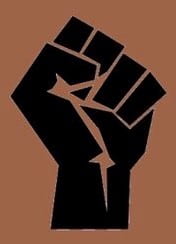Anti-Racism work is challenging. It is uncomfortable, and emotionally and physically exhausting. For people who experience racism it is even more harrowing; there is little opportunity to ‘take a break’ when one is living and experiencing racism and systemic racial inequity in their daily lives. They are always doing the work; by trying to dismantle racist structures or trying to stay resilient through painful racist occurrences.
These resources are focused on providing inspiration on empowerment, resilience and support. For Black, Asian and Minority Ethnic staff in particular, it will provide guidance on resilience, support and navigating higher education as a person of colour.

“I strongly believe that people of colour should never feel that they have to solve the problems of racism as it was not created by them. Whilst it is imperative that White staff are doing the work to be better allies, to use their privilege for power and to be actively anti-racist, I do think it is important for Black, Asian and Minority Ethnic staff to create opportunities for each other where possible, to empower people to value their own identities and celebrate their uniqueness, and to realise our own self-worth.”
In solidarity, Dr Kavita Powley (2020)
Americanah by Chimamanda Ngozi Adichie
Barracoon: The Story of The Last Slave by Zora Neale Hurston
Beloved by Toni Morrison
Biased by Dr Jennifer Eberhardt
Brit(ish) by Afua Hirsch
Diversify by June Sarpong
Don't Touch My Hair by Emma Dabiri
Freedom Is A Constant Struggle by Angela Davis
Girl, Woman, Other by Bernardine Evaristo
Hood Feminism by Mikki Kendall
How to Argue with a Racist by Adam Rutherford
How to Be an Anti-Racist by Ibram X. Kendi
I Am Not Your Baby Mother by Candice Brathwaite
Inglorious Empire: What the British Did to India by Shashi Tharoor
Me and White Supremacy by Layla F. Saad
More than Enough by Elaine Welteroth
Natives by Akala
Overcoming Everyday Racism by Susan Cousins
Queenie by Candice Carty-Williams
Race Talk and the Conspiracy of Silence by Derald Wing Sue
Seeing Race Again by Kimberlé Williams Crenshaw et al.
Slay in Your Lane by Yomi Adegoke and Elizabeth Uviebinené
So You Want To Talk About Race by Ijeoma Oluo
Such a Fun Age by Kiley Reid
Superior: The Return of Race Science by Angela Saini
The Clapback: Your Guide to Calling Out Racist Stereotypes by Elijah Lawal
The Good Immigrant by Nikesh Shukla
The New Jim Crow: Mass Incarceration in The Age of Colorblindness by Michelle Alexander
Think Like a White Man by Boule Whytelaw and Nels Abbey
What Does It Mean to Be White? Developing White Racial Literacy by Robin DiAngelo
When They Call You A Terrorist by Patrisse Khan-Cullors and Asha Bandele
White Fragility by Robin DiAngelo
White Privilege by Kalwant Bhopal
Why I’m No Longer Talking to White People About Race by Reni Eddo-Lodge
Your Silence Will Not Protect You by Audre Lorde
Get comfortable with being uncomfortable
Luvvie Ajayi isn’t afraid to speak her mind or to be the one dissenting voice in a crowd. ‘Your silence serves no one’ say the writer, activist and self-proclaimed professional troublemaker. In this talk, Ajayi shares three questions to ask yourself if you’re teetering on the edge of speaking up or quieting down- and encourages all of us to get a little more comfortable with being uncomfortable.
The danger of a single story
Our lives, our cultures, are composed of many overlapping stories. Novelist Chimamanda Adichie tells the story of how she found her authentic cultural voice- and warns that if we hear only a single story about another person or country, we risk a critical misunderstanding.
We need to address the real roots of racial violence
Why does the killing of unarmed blacks continue to happen? Asks political scientist Megan Ming Francis. She makes an urgent case for a new approach to these tragic deaths, explaining that we need to look at the deeper causes of systematic racism rather than settle for easy fixes.
Three myths about racism
While many of us like to believe that we’re closer than ever to reaching a post-racial society, the research of Dr Candis Watts-Smith paints a very different picture. Dr Watts-Smith dispels what we think we know about racism, and explores what we can do in order to live in a post-racist society.
The urgency of intersectionality
Now more than ever, its important to look boldly at the reality of race and gender bias- and understand how the two can combine to create even more harm. Kimberle Crenshaw uses the term intersectionality to describe this phenomenon, as she says, if you’re standing in the path of multiple forms of exclusion, you’re likely to get hit by both. In this moving talk, she calls on us to bear witness to this reality and speak up for victims of prejudice.